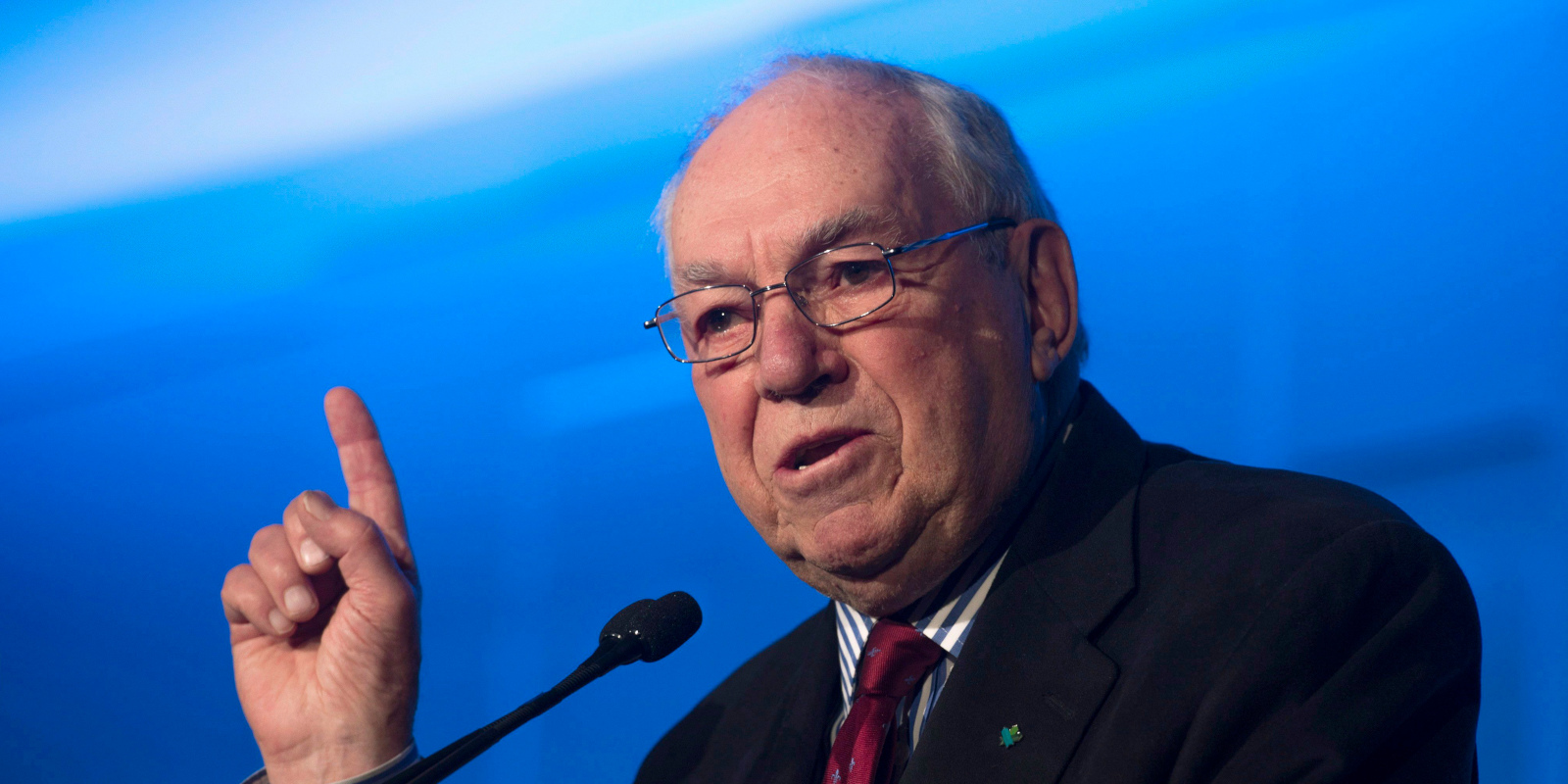There has been a lot of optimism recently in conservative circles that working class voters will be the future of the party. Prominent politicians on the right, like Conservative leader Pierre Poilievre and former Ontario cabinet minister Monte McNaughton, have spent time wooing workers with the hopes of riding a blue-collar wave in election campaigns.
Canada’s New Democratic Party, which has historically been the party of labour unions, may have something to say about it though, as they look to head off Conservative efforts.
The Hub spoke to former New Democratic Party leader Ed Broadbent about the conflict between class-based social democracy and modern identity politics, the importance of the working class in the NDP coalition and how “big government” can come with risks.
1. There’s a key distinction between a “market-based economy” and a “market-determined society”
“I make a distinction between a market-based economy and a market-determined society. A market-based economy, by and large, is what I favour, but not unlimited, of course. So although the delivery of most goods and services I would see being based on market principles, both for economic efficiency and for political sovereignty reasons—that’s desirable from a functioning economy point of view—I don’t want the society as a whole to be shaped by market principles. There are all kinds of things in our lives that ought not to be. They include, of course, traditional social democratic objectives of getting pensions or now housing out of the market and guaranteed as rights of citizenship…If you have that mixed-market economy but not market-shaped society, I think we can achieve what I would call the good society.”
2. Don’t abandon the working class for “educated elites”
“The Democratic Party had for decades since [Franklin] Roosevelt been the instrument of working-class men and women to improve their condition. During the Clinton years, it began to move in the direction you’re talking about, putting emphasis on their political concern about the educated elites on both coasts in the U.S.: Harvard in the East Coast, and Stanford in on the West Coast. They not only appeared to the working-class people but were focusing on getting the support of these new elites that were coming into being highly educated people. That is to say, I repeat, the Democrats went after these new elites, and they abandoned the working class. They really did. Trump came along and offered rhetorically, at least, support to that precise group that felt abandoned by the Democratic Party. And the fact that they had been abandoned left them open to the appeal that Trump was making.
By the way, the same thing happened with the Labour Party in England. It went after the young, sophisticated people, often from the working class themselves, who were going into Oxford and Cambridge and went off. They paid a lot of attention to these people. In the meantime, the working class, particularly in northern England, were abandoned. Along came the conservatives in England and scooped up areas that for a hundred years had been for the Labour Party and swung over to the Conservative Party precisely because the Labour Party was seen as abandoning them.
So it’s very important for a social democratic party to pay attention to what they’re supposed to be all about, which is to build a society that’s just for the mainstream and is seen to be just and fair by lower-income people, particularly.“

3. “Big government” has its own risks
“I am saying that an insensitive state is a distinct possibility at times. My colleagues say, in the social democratic movement, when they get power, they may respond in a way that, in practice, is no different from their more conservative political enemies in civil society. The very presence of state structure that has an impact in everybody’s lives has the distinct possibility of going awry and using power for its own sake in a way that’s unintended or unplanned by the social democratic objectives. So I think there always has to be a skepticism about the use of power precisely by social democratic politicians, and they should expect to have built in criticisms of their own propensities to misuse power.“
Listen to Ed Broadbent’s full interview with The Hub’s editor-at-large Sean Speer on the audio player below or on your favourite podcast app.
If you enjoy Hub Dialogues, be sure to check out more insightful commentary on The Hub’s YouTube page:
Recommended for You

‘Our role is to ask uncomfortable questions’: The Full Press on why transgender issues are the third rail of Canadian journalism

Need to Know: Mark Carney’s digital services tax disaster

Sean Speer: Investing in critical minerals isn’t just good business, it’s a national security imperative

Theo Argitis: Carney is dismantling Trudeau’s tax legacy. How will he pay for his plan?




